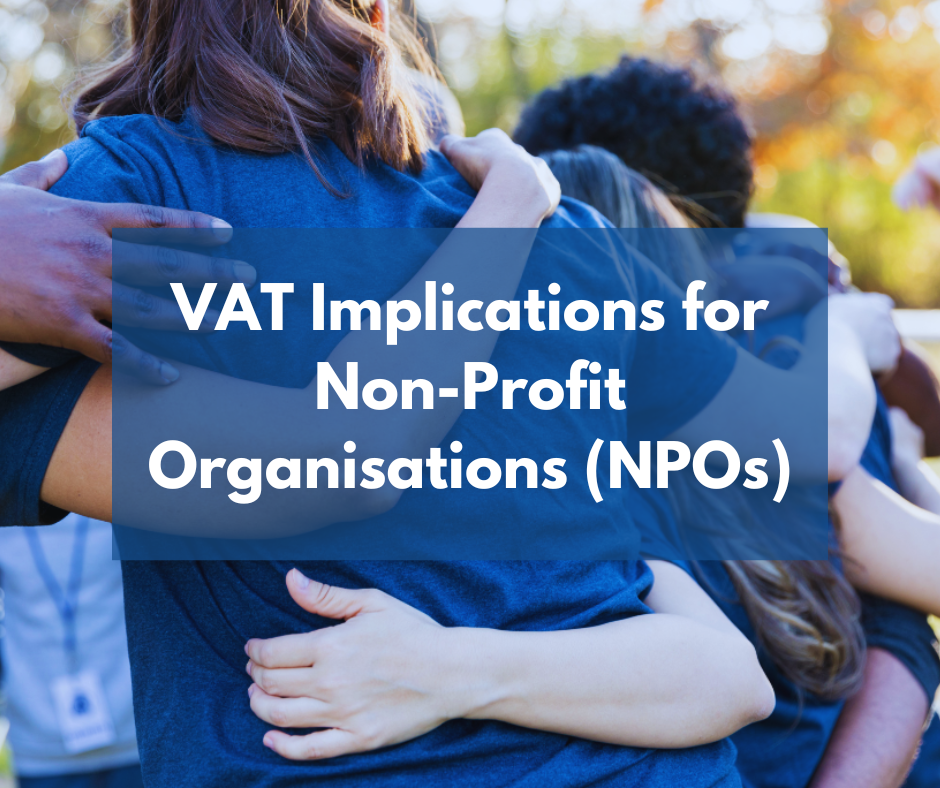There has been a longstanding debate on whether a non-executive director (NED) should have PAYE (employees’ tax) deducted from the non-executive director fees paid by a company or if a NED should be required to register for VAT (Value-added tax). SARS issued Binding General Rulings (BGRs) 40 and 41 to provide clarity on these much-debated views. The rulings have been effective since 1 June 2017.
First, let’s start by discussing the definition of a non-executive director (NED) in the context of South African tax laws as there is no definition for a NED in the Act. NED is a natural person who is a member of a board of a company as appointed under the Companies Act. It will also apply to NED’s of “public entities” as defined in the Public Finance Management Act 1 of 1999, to the extent that the public entity is a company.
Binding General Ruling (BGR) 40 confirm that non-executive directors (NEDs) are not common law employees but independent contractors under the VAT Act and that no control or supervision is exercised by the company concerned, over the way an NED performs his or her duties or the NED’s hours of work. SARS considers an NED to be a director who is not involved in a company’s daily management or operations, but simply attends, provides objective judgment, and votes at board meetings.
Fees earned for services rendered as a NED do not constitute “remuneration” as contemplated in paragraph 1 of the Fourth Schedule to the Income Tax Act and should therefore not be subject to the mandatory deduction of employees’ tax (PAYE) by the company concerned.
In addition, BGR 41 clarifies that NED’s are carrying on an ‘enterprise’ in respect of services rendered as a NED. It also stipulates that the NED that carries on an ‘enterprise’ in South Africa is required to register as a vendor and charge VAT where the value of all fees received for NED activities exceeds R1-million in any 12 consecutive months.
Where a NED receives fees in the aggregate which is less than R1-million in a 12-month period is not required to be registered for VAT but can elect to register for VAT on a voluntary basis if the value of taxable supplies exceeds R50 000 in any consecutive period of 12 months.
How must the value of taxable supplies be calculated?
The NED is required to account for output tax on the NED fees received. The company will be entitled to deduct input tax on the VAT-inclusive NED fees, subject to sections 16, 17, and 20 and the definition of “input tax” in section 1(1).
Generally, the VAT charged by a vendor to another vendor on any goods or services acquired for the business will qualify as input tax in the hands of the recipient vendor. It is important that input tax is only deducted insofar as the supplies are used for the purposes of making taxable supplies in the course or furtherance of the enterprise, and not incurred for private or other non-taxable purposes.
There are only a handful of expenses, relating to employment which may be allowed as deductions. As noted previously, a NED does not earn “remuneration”. Therefore, a NED will be able to claim input tax on expenses incurred in relation to their duties.
What will qualify as input tax or a deduction?
The following are typical examples of expenses incurred for the purpose of making taxable supplies on which input tax may be deducted by a NED:
- Water, electricity, and telephone charges
- Administrative overheads such as audit and accounting fees
- Marketing and advertising expenditure
- Movable assets such as office furniture, computer equipment, and cell phones
- Rental charges for office space
- Fees charged by VAT-registered consultants and other independent contractors (but not salaries and wages of employees)
- Repairs to a motor vehicle
- Travel expenses for business purposes, for example, a plane ticket
The following are typical examples of expenses incurred on which input tax may generally not be deducted by a NED:
- Acquisition or rental of a motor vehicle
- Accommodation in a hotel, including for business purposes
- Business lunches
- Personal computer used by the family
- Travel expenses for private purposes
- Membership fees or subscriptions of clubs, associations, or societies of a sporting, social or recreational nature
Conclusion
The fact that the payments to an NED are subject to VAT and not subject to PAYE, does not mean they are not subject to normal tax. The normal tax liability arising from the income earned must be settled via the provisional tax system during the year of assessment. The NED must therefore take careful consideration of the implications of PAYE and VAT, or risk being held liable for non-compliance with SARS.

Author: Anver Kayser














